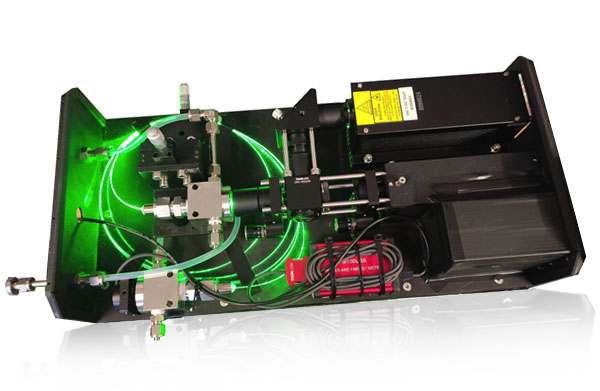Gas Raman Spectrometer
A Revolution In Gas Analysis
Raman spectroscopy is a well-established technique that demonstrates excellent chemical sensitivity for identifying a diverse range of solid and liquid samples. However, due to the diffuse nature of gases, the inherently weak optical scattering presents a challenge when analysing them. A practical method to overcome this limitation is to extend the optical path length to optimise the interaction of excitation photons with Raman scattering centres. This increases the generation of unique energy-shifted Raman photons, which deliver the unique chemical fingerprint of the target gas or gases.
Product Specifications

Gas Raman
ISI’s gas Raman instrument uses hollow-core micro-structured fibre optics, where the target gas species is drawn into the internal volume of the hollow-core fibre.
The gas’s Raman spectra are captured via a hardware configuration comprising a laser, dispersive spectrometer, and coupling optics. The instrument delivers an in-situ gas measurement quickly and offers other significant benefits over traditional gas chromatographic solutions.
Gas chromatography (GC) is the typical technique for gas phase metrology. However, gas chromatographs have several drawbacks, including being expensive and requiring a skilled technician to operate the system and interpret results. Samples cannot be measured in situ, requiring off-site analysis, increasing the measurement cycle time. GC also requires an anticipatory column based on the gases the operator expects to find. Our gas Raman system addresses these challenges.
Specifications:
| Feature | Detail |
|---|---|
| Raman operating λ | 532 nm |
| Configuration | Hollow core fibre (HCF) |
| Operating Range | 400-4500 cm-1 |
| Resolution | <4 cm-1 |
| Detector | Andor iVac 316 |
| Fibre coupled | SMA or FC/PC |
| Dimensions | Tabletop |
Key Features/Benefits:
- In situ measurements reducing metrology cycle time
- No need to shut down pipelines to collect samples
- Can be operated by a non-technical worker
- Multiple-channel gas detection
- No requirement for an anticipatory column based on expected findings
- Option to generate a gas distribution map of target environment
Applications include:
- Nuclear fusion
- Nuclear decommissioning
- Security & Defence
- Environmental monitoring
- Natural gas/hydrogen blending
- Manufacturing process monitoring

